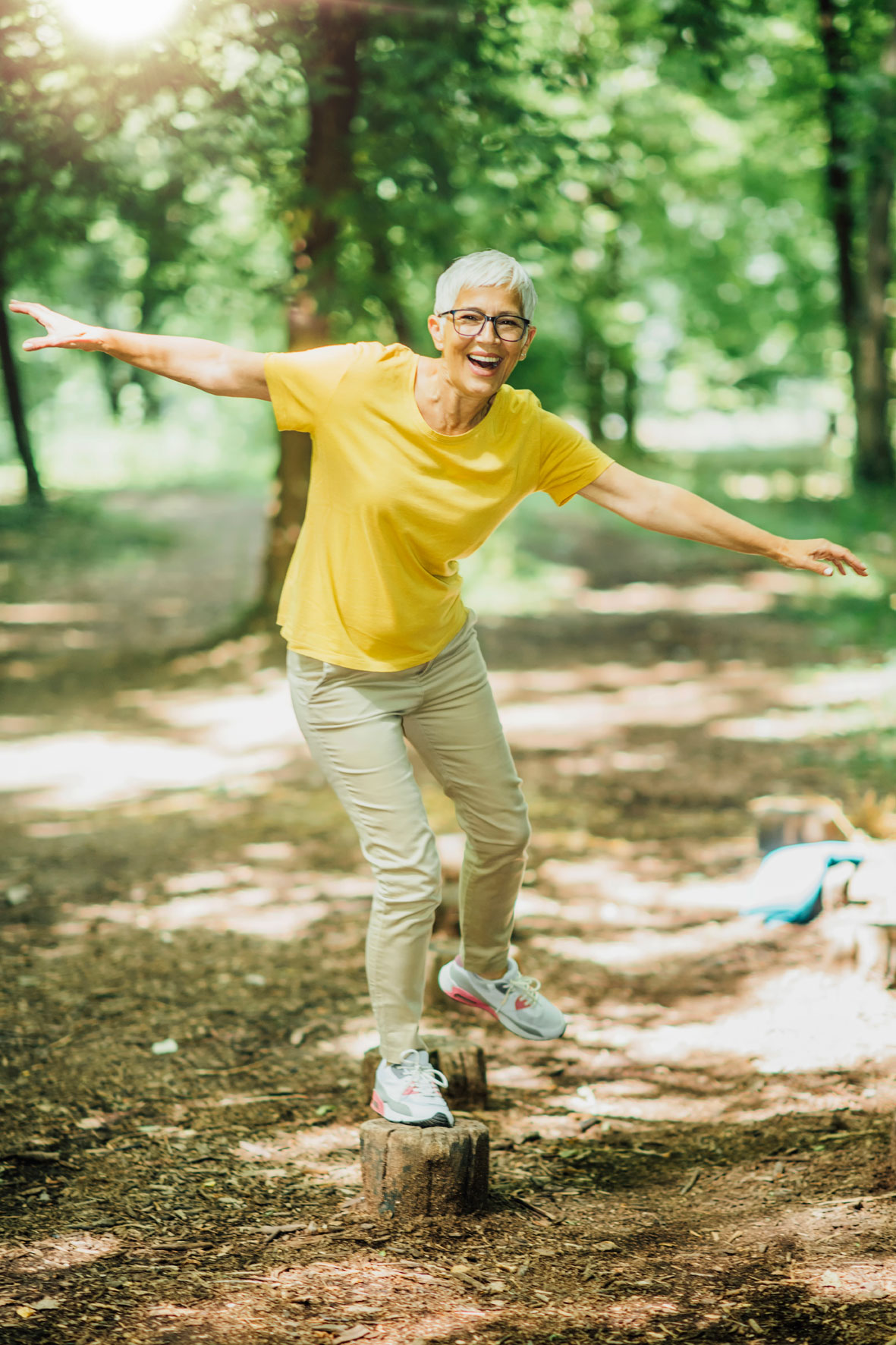 Why do people with Parkinson’s become unsteady?
Why do people with Parkinson’s become unsteady?
One of the common movement symptoms that people with Parkinson’s can notice is difficulty balancing and being able to right themselves if they lose balance. This is known as “postural instability” and tends to become more of a problem with time. Several factors contribute to this:
- Balance is complicated and requires lots of different types of nerves to work together. In Parkinson’s these nerves don’t always communicate properly with one another. A lot of the senses involved in balance can change as we get older (for example eyesight and spatial awareness).
- A lot of people with Parkinson’s become stiffer and less mobile. When they are less active, muscles get weaker. This makes it harder for a person to right themselves if they start to lose balance.
- Normally the body makes frequent small adjustments in posture by sending messages to all muscle groups. These messages may be impaired in Parkinson’s, which can lead to a stooped posture and slower reaction times.
People with Parkinson’s may experience drops in blood pressure on standing. This can cause dizziness or light-headedness and contribute to unsteadiness. For more information about this, please watch below video.

Play Video
What helps?
- Keeping muscles strong through exercise is essential. When people are diagnosed with Parkinson’s it is important to start (or continue) regular exercise, keeping as active as possible, as this reduces the impact of movement symptoms. We strongly encourage you to look at the physiotherapy and exercise section of My Parkinson’s and adopt exercise into your daily routine. This doesn’t need to be going to the gym or signing up for a marathon, find something that you enjoy which keeps you active and your muscles strong. Start in the “Physiotherapy and Exercises” section for ideas and inspiration. Links can be found in local information about Parkinson’s specific exercise opportunities locally.
- If you have problems with balance and unsteadiness than a referral to a physiotherapist for a personalised approach may be helpful. Talk to you Parkinson’s team or GP.
giddiness, giddy, wobbly, unstable, instability, dizzy, tottering, postural instability, posture, postural reflexes